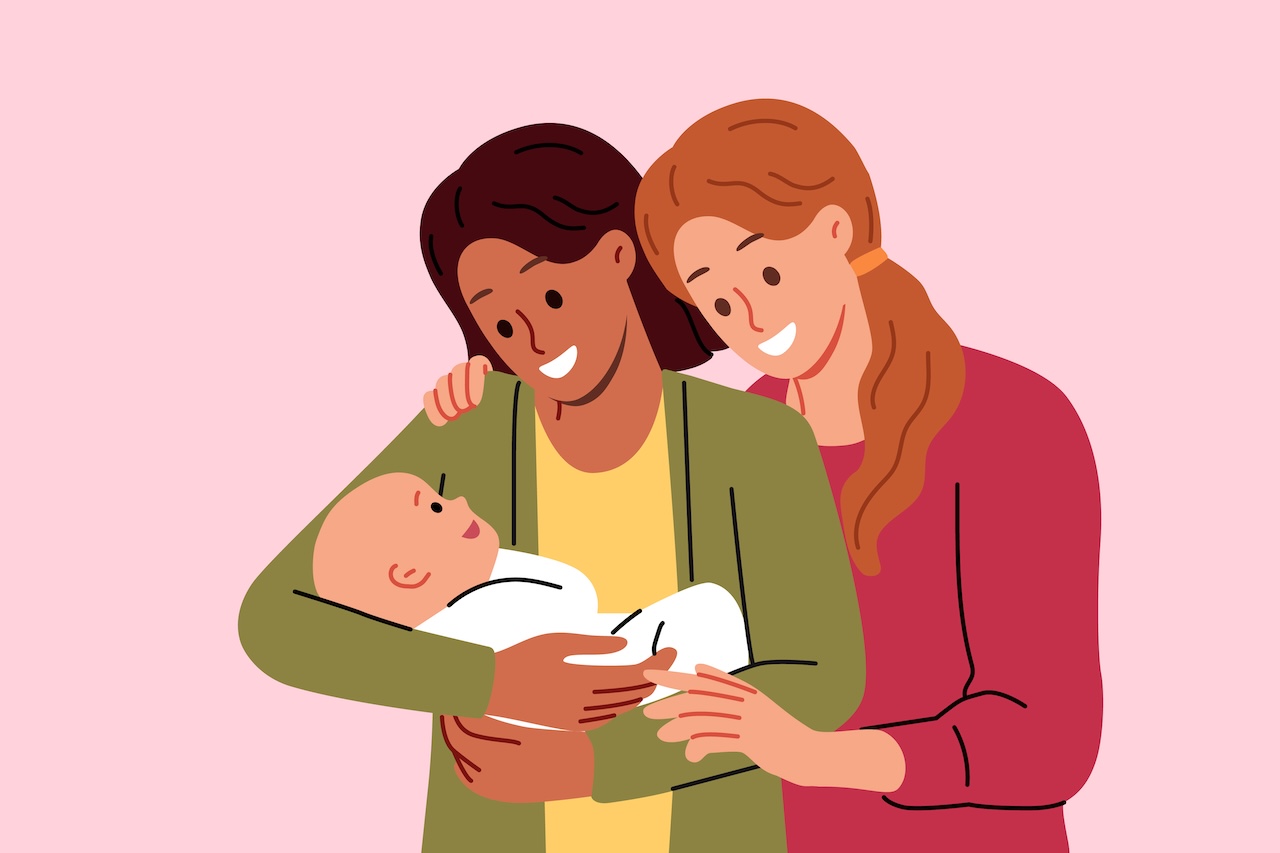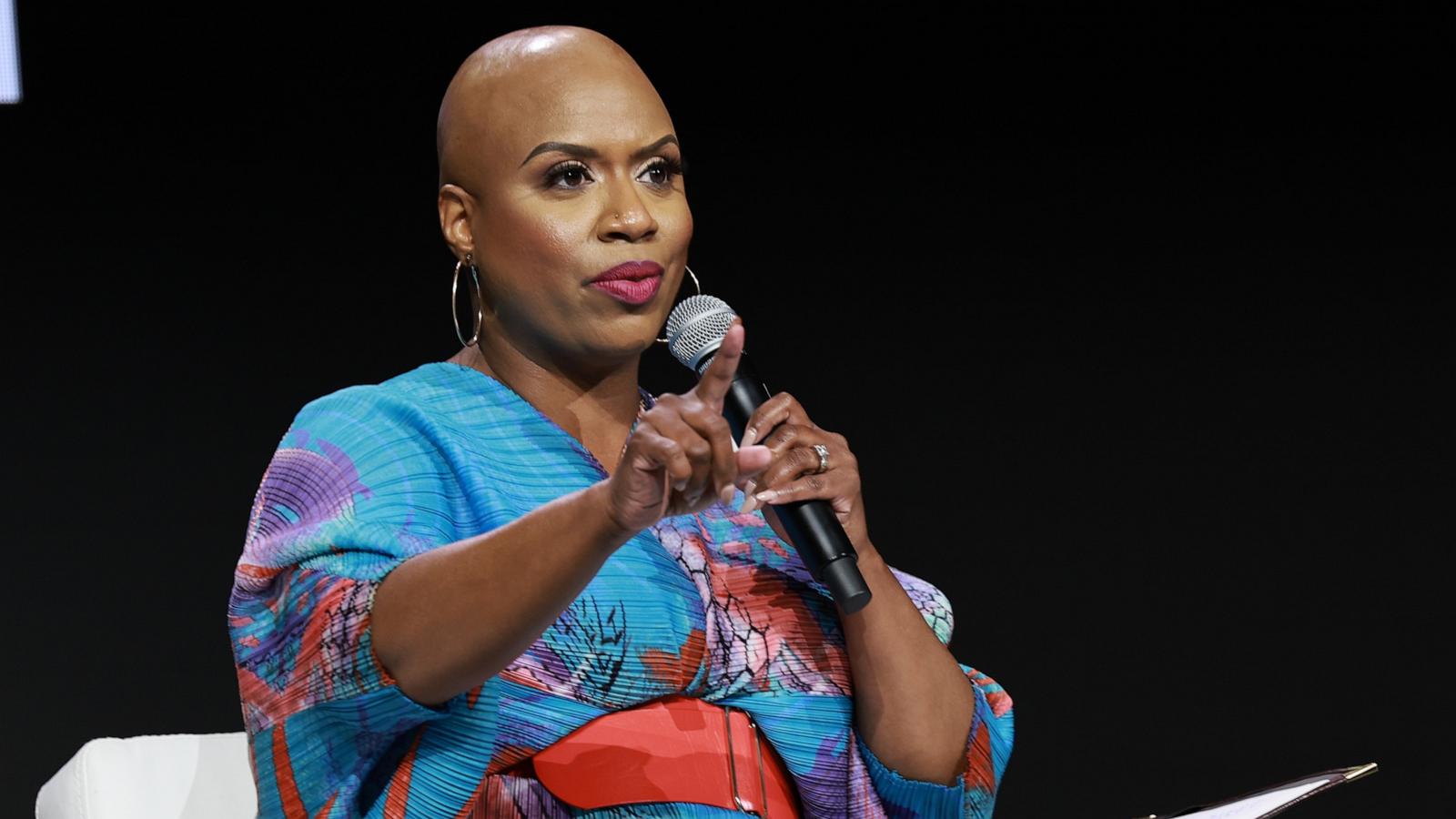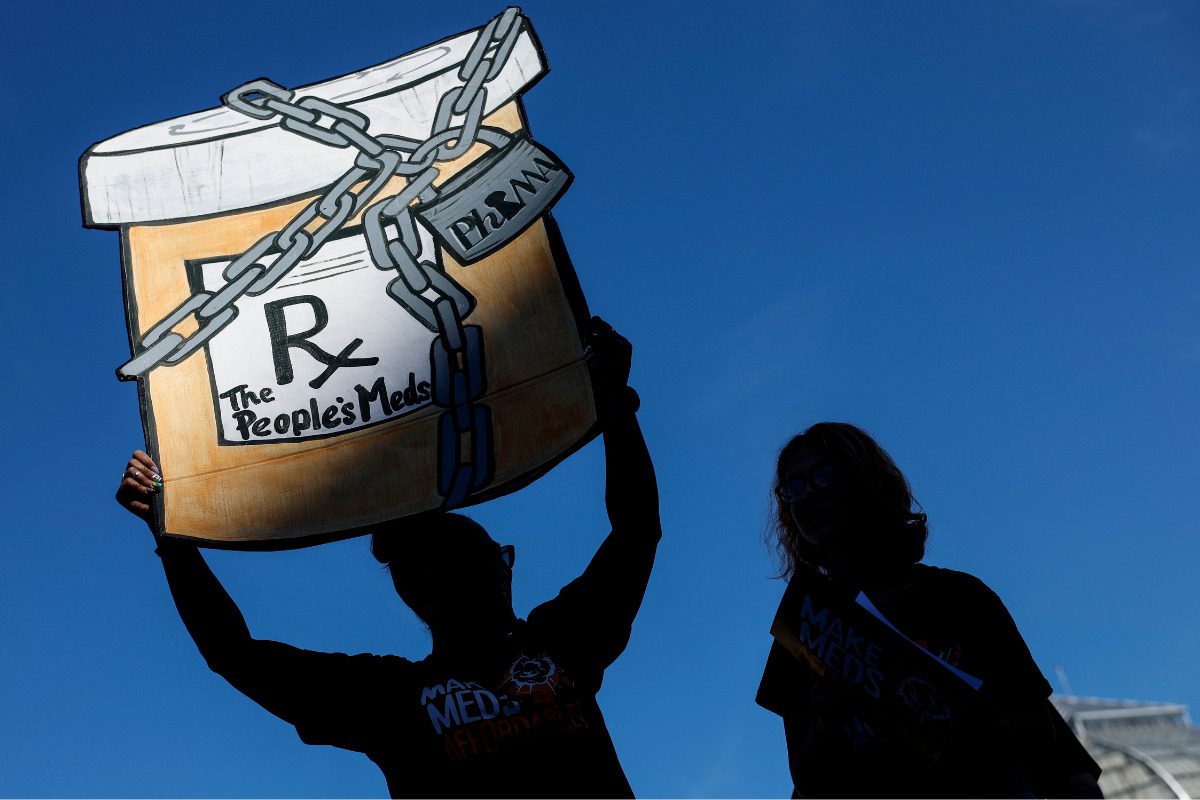Originally by Chabeli Carrazana, The 19th at arkansasadvocate.com
Originally published by The 19th
After three rounds of fertility treatments, Haley Swenson and her wife, Alieza Durana, had a baby boy in March 2023. Because Swenson carried their baby and was the biological mother, only she was seen as the parent in the eyes of the law. Durana would have to adopt her own son.
That process is expensive — at least a couple thousand dollars — so they put it off as the costs of raising an infant mounted. But the day after Donald Trump was reelected, the couple felt a new urgency: Would the incoming administration strip away their rights to call themselves moms? They had to seriously consider taking extra steps to ensure their child would, legally, always be considered theirs.
Ahead of a second Trump administration that is likely to be hostile to LGBTQ+ people, queer parents across the country are calling attorneys and researching how they can protect themselves in the event that a Republican-controlled White House and Congress attempts to strip back protections for LGBTQ+ families.
Project 2025, the 920-page document that lays out priorities for a second Trump term, envisions a federal government that uplifts families made up of a married mother and father, while undermining LGBTQ+ parents. Policies focused on supporting LGBTQ+ equity “should be repealed and replaced by policies that support the formation of stable, married, nuclear families,” the document states. The courts could also take up LGBTQ+ equity cases. When Roe v. Wade was overturned in 2022, Supreme Court Justice Clarence Thomas indicated the court may consider revisiting other cases, including Obergefell v. Hodges, which secured marriage equality for LGBTQ+ couples.
“It’s unclear what they want to do, and that lack of specificity is what’s really scary if you’re a queer parent because you don’t really know how to protect yourself,” Swenson said. “So since we know there was this one thing we could do to protect ourselves, and we hadn’t done it yet, it was like, ‘OK, there are so many unknowns — let’s at least take care of what we can.”
After the election was called for Trump, Swenson and Durana gathered all their documents and typed a letter to their closest family and friends, asking them to help gather the funds to retain an attorney who would help them finalize the adoption before Trump’s inauguration at the end of January. They knew that simply being listed as a parent on a child’s birth certificate is not enough to establish legal parentage, especially for non-biological parents. Within less than a week, they had the $3,500 they needed to start the process. In late November, Swenson watched a webinar outlining steps LGBTQ+ families could take. Many other attendees were asking about pursuing adoptions for their children.
“We are getting a lot of questions about that,” said Meg York, the director of LGBTQ+ Family Law and Policy and an attorney at Family Equality, a nonprofit working to support LGBTQ+ families that helped organize the webinar. “Regardless of how your family is formed, it’s that security that’s the key concern here … without [a court judgment] your parentage might be questioned or challenged or unrecognized across state lines.”
Family laws like this often vary by state, each with their own rules about what they will recognize or not.
Often, attorneys recommend that same-sex couples obtain a court order that will ensure their parent-child relationship is recognized under the “full faith and credit” clause of the U.S. Constitution, which establishes that a court order in one state must be recognized elsewhere. Parents can obtain an adoption or a parentage order. Both are court orders recognized across states and can’t be undone if a state legislature decides to roll back protections for LGBTQ+ families.
Adoptions, which are subject to background checks and a court hearing, are an option for both unmarried and married couples and help establish that the nonbiological parent is the parent of the child. Some states may refer to it as “second-parent,” co-parent” or “stepparent” adoption. Parentage orders are similar in terms of the process and cost but differ in one sense: Couples can apply for them prior to the child’s birth, meaning those parental rights are established as soon as the child is born and there is no gap. It’s often an option for parents undergoing fertility treatments or surrogacy.
Children born to a married same-sex couple should be recognized as the parents of those children under the law, but discrimination against LGBTQ+ families has led to an uneven adoption of that standard. That’s why attorneys recommend families take additional steps.
Swenson is based in Utah, in a county where more than 70 percent of voters elected Trump to office in part because of conservative views. She knows the stakes.
“There are so many scary situations people are in where it’s going to come down to convincing a judge of your humanity,” Swenson said. “Your gender and sexual identity don’t change the fact that you’re a human and a good parent. There’s just a lot of people out there who are really uncertain about what lies ahead.”
In Austin, attorney Meghan Alexander used to receive maybe three calls a week about second-parent adoptions. The week after the election, she received 26. The calls and emails haven’t stopped.
“The advice is the same as it’s been for the last couple of decades, which is to do a second-parent adoption. Do not depend on the federal government or the gay right to marry to give you parental rights,” Alexander said.
Alexander recommends to her clients that parents get an adoption instead of a parentage order because in Texas, for example, parentage orders for LGBTQ+ families have not been thoroughly challenged in the court system, Alexander said, while adoptions have been upheld by the courts many times.
Adoptions are a popular option because they are also more commonly understood and “universally recognized” across states and countries, said Nancy Polikoff, professor emerita at American University Washington College of Law and an expert in LGBTQ+ family law. Still, it ultimately will depend on state laws and the parents’ preferences as to which avenue they pursue.
What is clear, Polikoff said, is that the incoming administration has increased concerns among LGBTQ+ families to seek out additional legal protection. She’s also been hearing from attorneys across the country who have been fielding numerous requests.
“When we are looking at the possibility of cutting back on LGBT family recognition, states that are not inclined to recognize the legitimacy of parenting by LGBT people are going to be emboldened to deny that status whenever they can,” she said.
Polikoff said she does not believe that gay marriage will be overturned in the next four years, but what may be more likely to happen is that states and courts will try to cut back on some protections LGBTQ+ people have recently secured. Parenting relationships could become easy prey.
“Nobody is expecting Obergefell to be overturned anytime soon,” Politikoff said. “Unfortunately, I think parentage is one of those places where if a court is just not going to be as protective in a particular state, I think they are going to have more leeway to discriminate under a Trump administration.”
But ensuring additional legal protections comes with a price. The process can cost in the thousands — Alexander said that in Texas it’s about $5,000 — and that’s usually after a family has undergone fertility treatments.
Swenson paid about $6,000 for fertility treatments, and when her son was born, she didn’t have any access to paid leave in her contract job as a gender and family researcher. Then her wife got laid off in August. They depleted much of their savings and have been living paycheck to paycheck. Alexander, the attorney in Texas, and her wife also put theirs off because of cost. In her law practice, she tries to help families seeking an adoption by offering a sliding scale depending on their income, or a zero-interest repayment plan.
“Being a queer parent is expensive in other ways,” Swenson said. “It makes me sick to think there are people who need this done and cannot get it done.”
For Swenson’s family, the process will take about six weeks, and involves a court hearing, as well as child abuse and criminal background checks. Her attorney, Lauren Barros, has told her she is very busy managing multiple cases for LGBTQ+ parents in the Salt Lake City area. The family also plan to change their last names to all match their son’s: Swenson Durana.
Since their son was born, Swenson and Durana have settled into the parental reality of constantly trying to anticipate danger, but the prospect of an anti-LGBTQ+ administration at a time of rising anti-LGBTQ+ sentiment has introduced new fears. There’s the regular stuff, like worrying about how to shield their son from hazards on the playground, or figuring out when to wean him off the bottle and whether he’s eating enough. And now there are new, more existential concerns — both for them and for many queer parents.
“We are also thinking, can we always be there for him?” Swelson said. “Can we ensure that no matter what happens he has his moms — forever?”
The 19th is an independent, nonprofit newsroom reporting on gender, politics and policy.
Read the Original Story





